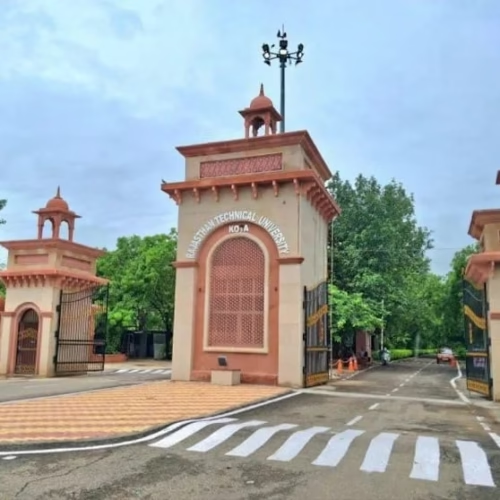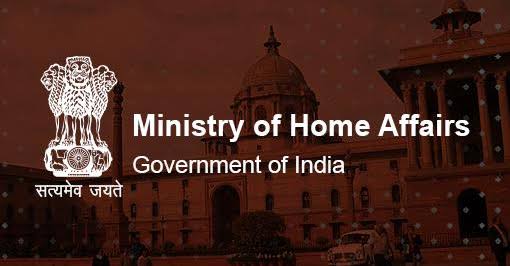BY DEFENCE JOURNALIST SAHIL | T.I.N. NETWORK
Pakistan’s Harassment of Indian Diplomats in Islamabad Escalates After Operation Sindoor; From Newspaper Bans to Surveillance and Utility Cuts, Violations of Vienna Convention Mount
New Delhi/Islamabad: The simmering tensions between India and Pakistan have entered another acrimonious chapter after Pakistan, still reeling from the strategic and military shock delivered by Operation Sindoor, initiated an organised campaign to harass Indian diplomatic personnel stationed in Islamabad. Official sources and eyewitness accounts confirm a pattern of targeted disruptions, ranging from cutting off newspaper deliveries to intrusive surveillance, denial of basic services, and even unauthorised entries into official and residential premises.
The Immediate Trigger – Operation Sindoor’s Impact
Operation Sindoor, executed earlier this year, was not just a military success but a strategic signal by India that hostile provocations and terror infrastructure across the border would be met with decisive force. Pakistani military assets, communication lines, and several key installations suffered critical damage. The ripple effect was both tactical and psychological—undermining Pakistan’s military confidence and exposing vulnerabilities in its internal security architecture.
For Islamabad, the aftermath has been one of diplomatic bitterness. Instead of confronting India militarily, Pakistan has resorted to what analysts describe as “low-intensity diplomatic warfare”—a series of pinprick measures aimed at irritating, inconveniencing, and pressuring Indian officials on its soil.
Newspapers Blocked – Symbolism and Strategy
The most visible of these measures has been the stoppage of newspaper deliveries to the Indian High Commission and to the private residences of Indian diplomats in Islamabad. On the surface, it may seem trivial, but in diplomatic circles, such acts carry symbolic weight. Newspaper delivery is not merely about information—it is a routine, a basic amenity, and in diplomatic missions, a subtle but essential part of daily operations.
India’s response was swift and symmetrical: newspaper deliveries to Pakistani diplomats in New Delhi were suspended. While India’s move mirrors Pakistan’s action, the underlying message is clear—reciprocity will be applied to any form of harassment.
From Harassment to Hostile Surveillance
More alarming than the newspaper ban are credible reports of aggressive physical and electronic surveillance. Indian diplomats and their families in Islamabad have reportedly been followed by vehicles with tinted windows, shadowed on their commutes, and filmed without consent.
Security sources further allege that Pakistani operatives have conducted unauthorised entries into diplomatic residences and offices, tampering with personal belongings and possibly installing monitoring devices. Such intrusions not only violate privacy but also undermine operational security, potentially compromising sensitive diplomatic communications.
Weaponising Basic Amenities – The Gas and Water Blockade
Perhaps the most insidious measure has been the denial of basic utilities. Local vendors and service providers, reportedly acting under instructions from Pakistani authorities, have refused to supply cooking gas cylinders, drinking water, and maintenance services to Indian diplomatic premises.
By choking access to such essentials, Islamabad is engaging in what one senior Indian official described as “pressure by daily inconvenience”. This tactic forces diplomats to spend more time and energy on resolving basic living issues, indirectly distracting them from official work.
Pattern of Retaliation – Echoes from 2019
This is not without precedent. In 2019, following the Pulwama terror attack and India’s surgical strikes, Indian diplomats in Pakistan were subjected to similar harassment—delayed utility connections, blocked access to schools for their children, and increased tailing by intelligence personnel.
Back then, New Delhi responded with equally measured counter-actions, but the cycle of harassment never truly ended. The current escalation post-Operation Sindoor suggests a recurring retaliatory pattern, wherein Pakistan uses harassment as a diplomatic pressure valve when military retaliation is either unfeasible or too costly.
Vienna Convention – International Law at Stake
The Vienna Convention on Diplomatic Relations (1961)—ratified by both India and Pakistan—lays down the rules of diplomatic engagement, guaranteeing the safety, dignity, and functional independence of diplomatic staff. Article 22 of the convention explicitly states that the premises of diplomatic missions are inviolable and that the host state must take all appropriate steps to protect them.
By allowing surveillance, unauthorised entries, and deliberate service disruptions, Pakistan is not only breaching bilateral understandings but also flouting an international treaty to which it is a signatory. Such actions, if documented and presented, could invite censure from global diplomatic forums and bodies like the United Nations.
India’s Strategic Posture
While India’s immediate response has been measured—halting newspaper supplies to Pakistani diplomats in New Delhi—senior officials stress that New Delhi will not hesitate to escalate proportionately if harassment continues. The Ministry of External Affairs is said to be maintaining a detailed log of all incidents, complete with photographic and documentary evidence, for potential use in formal diplomatic protests or international arbitration.
Wider Implications for Bilateral Relations
Experts warn that such incidents, though seemingly small in scale, have corrosive effects on diplomatic engagement. Trust between missions erodes, official communication becomes strained, and even necessary coordination on humanitarian or emergency matters is jeopardised.
Given that India and Pakistan already operate with minimal high-level engagement, these hostile actions further diminish the likelihood of any near-term thaw. Instead, analysts predict a prolonged phase of “frozen hostility”, where neither side seeks full confrontation but both indulge in symbolic, often petty retaliations.
ऑपरेशन सिंदूर के बाद पाकिस्तान का भारतीय राजनयिकों पर हमला; अख़बार बंद, निगरानी तेज, गैस-पानी जैसी बुनियादी सुविधाओं में रुकावट, वियना कन्वेंशन का उल्लंघन
नई दिल्ली/इस्लामाबाद: ऑपरेशन सिंदूर में करारी हार के बाद पाकिस्तान ने इस्लामाबाद में तैनात भारतीय राजनयिकों को निशाना बनाना शुरू कर दिया है। आधिकारिक सूत्रों और प्रत्यक्षदर्शियों के अनुसार, यह कार्रवाई सिर्फ प्रतीकात्मक नहीं बल्कि व्यवस्थित और योजनाबद्ध है—जिसमें अख़बारों की आपूर्ति रोकने से लेकर कड़ी निगरानी, बुनियादी सुविधाओं की कटौती और यहां तक कि राजनयिक आवासों में बिना अनुमति के प्रवेश तक शामिल है।
ऑपरेशन सिंदूर का असर – असली वजह
इस साल की शुरुआत में हुई ऑपरेशन सिंदूर केवल सैन्य दृष्टि से सफल नहीं रहा, बल्कि यह भारत का स्पष्ट संदेश था कि सीमा पार से होने वाली आतंकी गतिविधियों का जवाब सख्ती से दिया जाएगा। इस ऑपरेशन में पाकिस्तान की कई सामरिक और सैन्य स्थापनाएं ध्वस्त हुईं, संचार नेटवर्क क्षतिग्रस्त हुआ और उनका मनोबल गिरा।
पाकिस्तान ने अब सीधी सैन्य प्रतिक्रिया के बजाय राजनयिक मोर्चे पर “लो-इंटेंसिटी वॉरफेयर” शुरू कर दी है—छोटी-छोटी लेकिन लगातार परेशान करने वाली कार्रवाइयां, जिनका मकसद भारतीय अधिकारियों का मनोबल गिराना है।
अख़बार सप्लाई बंद – छोटा कदम, बड़ा संदेश
इस्लामाबाद में भारतीय उच्चायोग और राजनयिक आवासों तक अख़बारों की सप्लाई रोक दी गई है। यह कदम देखने में मामूली लग सकता है, लेकिन राजनयिक जगत में इसका खास महत्व है। अख़बार केवल सूचना का स्रोत नहीं होते, बल्कि मिशन की रोजमर्रा की कार्यप्रणाली का अहम हिस्सा हैं।
भारत ने भी तुरंत जवाबी कदम उठाते हुए दिल्ली में तैनात पाकिस्तानी राजनयिकों के लिए अख़बार सप्लाई बंद कर दी। संदेश साफ है—हर कार्रवाई का जवाब मिलेगा।
कड़ी निगरानी और घुसपैठ
सूत्रों के मुताबिक, पाकिस्तानी एजेंसियां भारतीय राजनयिकों और उनके परिवारों की भौतिक और इलेक्ट्रॉनिक निगरानी कर रही हैं। कई बार वाहन पीछा करते हैं, गुप्त कैमरे से रिकॉर्डिंग होती है और यहां तक कि बिना अनुमति के आवासों और दफ्तरों में घुसपैठ की गई है।
गैस-पानी जैसी सुविधाओं को बनाया हथियार
स्थानीय सप्लायर्स को आदेश दिया गया है कि वे भारतीय राजनयिकों को गैस सिलेंडर, पीने का पानी और मरम्मत सेवाएं न दें। यह रोजाना की असुविधा और मानसिक दबाव पैदा करने का तरीका है।
2019 की घटनाओं की पुनरावृत्ति
2019 में पुलवामा हमले और भारतीय सर्जिकल स्ट्राइक के बाद भी इसी तरह की परेशानियां खड़ी की गई थीं—स्कूलों में बच्चों का दाखिला रोका गया, सेवाओं में देरी की गई और निगरानी बढ़ा दी गई थी।
वियना कन्वेंशन का उल्लंघन
वियना कन्वेंशन ऑन डिप्लोमैटिक रिलेशंस (1961) के तहत मेज़बान देश पर यह जिम्मेदारी होती है कि वह राजनयिकों की सुरक्षा, गरिमा और स्वतंत्रता सुनिश्चित करे। पाकिस्तान की ये कार्रवाइयां न सिर्फ द्विपक्षीय समझौतों का उल्लंघन हैं, बल्कि अंतरराष्ट्रीय कानून की भी अवहेलना हैं।
भारत की रणनीति
भारत ने अभी तक संयमित लेकिन स्पष्ट प्रतिक्रिया दी है। अख़बार सप्लाई रोकना प्रतीकात्मक है, लेकिन संदेश यह है कि भारत हर स्तर पर जवाब देने को तैयार है। सभी घटनाओं का विस्तृत रिकॉर्ड रखा जा रहा है, जिसे अंतरराष्ट्रीय मंचों पर भी उठाया जा सकता है।












Add Comment